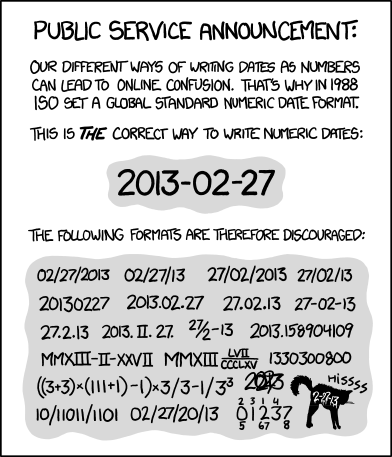I haven't dug quite deep enough yet, but using ISO time here would be best. The requests the dates are coming from are presumably handled by the Jellyfin plugin, KodiSyncQueue.
If not already available somewhere in the API response, it should be added either as a custom header, or an additional field, in the plugin.
TODO: Investigate the relevant API responses and their structure, to see if ISO time is provided, or if the structure of the response allows for an additional field containing the server datetime.
Failing that, a response header with the ISO datetime should be added. X-ISO-8601 or some such if no (defacto) standard header for this exists.
Messing with localized time string shall be avoided if at all possible, only trouble lies down that path.
If I could decide, the whole world would switch to ISO 8601, UTC, with no DST. That is how big of a pain this is.

Describe the bug When the locale has a month name format "%b" which is not English save_last sync raise an exception because it cannot parse the server-date (server-date is the HTTP header "Date" of the HTTP request, from
.kodi/addons/plugin.video.jellyfin/jellyfin_kodi/jellyfin/http.py:self.config.data["server-time"] = r.headers["Date"]).HTTP Date has three format https://datatracker.ietf.org/doc/html/rfc9110.html#section-5.6.7, the "preferred format is a fixed-length and single-zone subset of the date and time specification used by the Internet Message Format [RFC5322]". That is https://datatracker.ietf.org/doc/html/rfc5322#section-3.3.
strptime is wrong as HTTP Date is not localized, we should use a dedicated function.
Seems the closest to parse HTTP date is to parse it as an email date with email.utils.parsedate_to_datetime. https://stackoverflow.com/questions/1471987/how-do-i-parse-an-http-date-string-in-python (not that I don't have enough reputation to comment on the wrong answers that is rfc822 which is not more appropriate that email.utils as rfc822 is the obsolete RFC for email dates (the current one is https://datatracker.ietf.org/doc/html/rfc2822#section-3.3 which is what email.utils.parse is about), not an RFC for HTTP dates. And the strptime answer that as this bug re'port shows does not work on localized systems, i.e. with an LC_TIME not English).
Also see the discussion in https://github.com/jellyfin/jellyfin-kodi/issues/288#issuecomment-617950518 I disagree that ISO8601 is the way to go because server-date is about the HTTP date. We will have to parse the HTTP date format either way, so why not keep it the IMF format from RFC5322?
The issue is that we parse a non localized datetime string with a localized function, not that the format is wrong.
But do we agree to keep RFC5322 IMF date format?
Do we agree to use email.utils.parsedate_to_datetime (it is python 3.3 and above) or should I use email.utils.parse and then convert to datetime?
And is it fine to use email.utils.parsedate rfc2822 even if I believe it does not cope with the two obsolete HTTP date formats that the RFC9110 says we MUST be able to read?
Maybe test cases would be good too. Probably a test case with a locale with non-English month names, one that 2 digit year, a non rfc822 date string. Do you see others?
Edit: wed could also include djjango parse_http_date codfe which seems straightforward: https://github.com/django/django/blob/stable/5.1.x/django/utils/http.py#L97
To Reproduce
Expected behavior
No error in Kodi log and probably a working last sync guard.
Logs
Screenshots
System (please complete the following information):
Additional context
I tested this that seems to work.